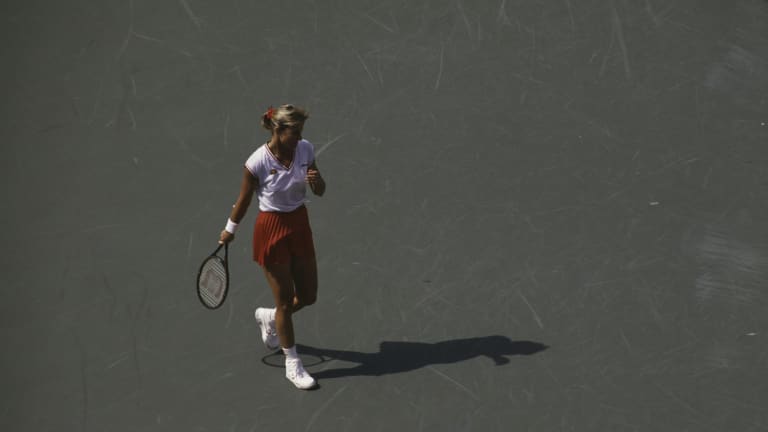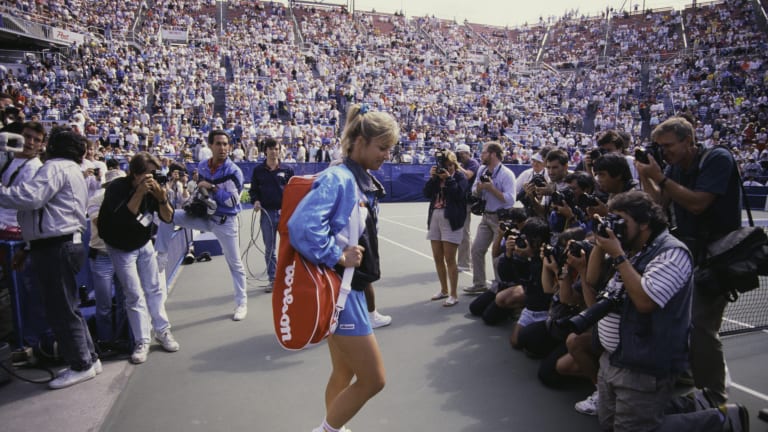Chris Evert’s journey to the top began at Holiday Park, a public tennis facility located in Ft. Lauderdale, Fla. Her father Jimmy, an excellent player in his day, was the instructor there, teaching Chris, her siblings, and many others with exceptional discipline.
Now, on this October day in 1989, nearly 7,500 miles from Ft. Lauderdale, the 34-year-old Evert entered a court in Tokyo to compete for the last time, in this case, for a Fed Cup match versus Spain.
Eager as Jimmy Evert was to see his oldest daughter excel, no doubt even he couldn’t have imagined how successful she would be. The numbers were staggering: 157 singles titles, including 18 majors and a mind-boggling 1309-146 match record – a 90 percent win rate that remains the highest in tennis history. But perhaps Evert’s most notable achievement was that for 13 straight years, from 1974-’86, she won at least one singles major. That too remains unsurpassed.
Evert had announced her retirement in a Sports Illustrated cover story that appeared on the eve of the 1989 US Open. Wrote Evert, “I have wondered since I was 25: How will I know when to retire? I thought nobody would tell me; I’d just feel it. I do, and I’m glad. It’s tough for some other people around me to accept my decision, because they aren’t prepared. Especially my dad, who has been my coach and my inspiration over all these years. He has always encouraged me to play more than anyone. Sometimes I’ve felt like asking him, ‘Dad, what’s the deal? Do you want me to play till I’m 50?’ This summer even he recognized the signs, and now it seems OK with him for me to stop. I will remember many things about my career, the most important being my parents and their support.”

